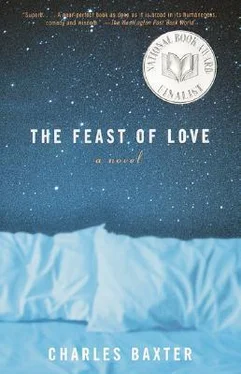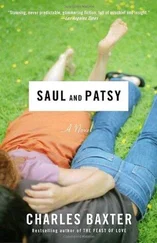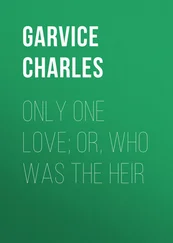“A mile or so away.” I pointed a finger westward. “You’re not particularly exasperating, you know. Not specifically. I’ve known worse.”
“Thank you. What do you do? For a living?”
I told him.
“Ah.” Sudden thunder crashed outside. We both moved, though I think I must have shuddered and surprised myself, because he told me a month later that I had shuddered and he had noticed and recorded it. That little movement, that tremor of mine, struck a flame. Bradley is interested in fears and phobias. He gestured toward the center of the mall, where there was nothing at all to see. “Violent weather,” he said.
“Right.”
“Well, you know… an improvement.”
“Ah.” I decided to nod, but not emphatically. An improvement to what? I would not inquire. A nod without enthusiasm, a nod that withheld final agreement, was what I gave him. I realize that my irony and my distance can become fatiguing, tiresome. But evasiveness is deeply erotic, at least to me. I can fight my own chilliness when the situation demands, when I rouse myself to charm and warmth. He smiled at me as if facing a strong headwind, which I had created and which collaborated with the storm outside. “You like it?”
“What?”
“The… the violent weather.”
“Oh,” he said, “sure.” He was very agreeable.
“So do I, I suppose.” I was trying to make a bit of a social effort. “When I was a little girl, I was afraid of thunder.” I glanced down at my newspaper. Something by Paul Hindemith was being revived at Lincoln Center. And something else by what’s-his-name, the boy genius, Korngold. What had happened to the Mark Morris article? “I was quite a cliché in those days,” I said, remembering the conversation.
“But you’re not a cliché anymore, probably. What are you afraid of now?” he asked.
“Now?” I thought for a moment. “You’re very direct. Why do you ask?”
“Because you don’t look like you’re afraid of much. You don’t look like the afraid type.”
“The afraid type? Exactly right. I’m not. Well, since you ask, I am opposed, emotionally I guess, to open spaces,” I said. “They get to me sometimes. Fields. They make me slightly loopy. Any place without a boundary. I have mild agoraphobia. Also I’m terrified of being bored. I get bored, and then I get scared of the way I’m bored. Nothing I can’t handle, though.”
“My ex,” he said, “was afraid of dogs.”
A pause. He didn’t say anything, and neither did I. The thunder and wind outside made a theatrical sound-effects din, but externally, distantly, an irrelevance to people in a shopping mall, except those who wanted electric light and couldn’t have it. “You know,” he said, pressing his luck, “sometimes, when I’m working here, I look out into the … recesses of this place, and I see all these people walking by, and I think about what they like and what they’re afraid of, and what makes them feel desolate.” Desolate. I’d never heard anyone use that word in conversation. What would be next? Disheartened? Forlorn? What a strange counterproductive and counterintuitive way to flirt! The style beyond a style. He kept on smiling, despite the turn in the conversation and despite his ineptitude at this sort of talk.
I still didn’t know his name. Shopping specters slid past us on their way somewhere. Winds belted the mall, whipped it.
It felt and looked weirdly sweet, that smile of his, and then I took the time and the initiative to glance at his hands. He had nice hands. There was a physical intelligence there. He didn’t have — he would never have — the visible attractiveness that David had, the sexual power to make you painfully aware of his body’s presence in the room with yours without your even having to look at him, and he would never have David’s shoulders and his way with words, but David was beautiful and wrongful and already spoken for. He was as assuming as this guy was unassuming.
“And then I think” — he was still talking while I considered what he, this guy, might be like in bed, long-term, or on the sofa on Sunday morning, married, as it were, as the sun poured in the windows, how he would be behind the wheel or raking the leaves — “about how even that — what people are afraid of — can make them attractive. And after I’ve been through their… fears, I start to imagine, not that I have all that much time, how I’d get along with them, if we were ever a couple, you know, where we’d travel to and so forth, Bali or Fuji maybe or the Orkney Isles, and how —”
“You mean Fiji.”
“What?”
“You said ‘Fuji’ and you meant ‘Fiji.’ One’s a film. The other’s an island in… well, you know where it is.”
“Oh,” he said. He was trying to smile, but it was a brave smile, a sickroom smile, and I was sorry I had caused it. I had apparently taken the wind out of his sails. His discouragement wasn’t a good sign. Men should stand up to me more than that. They have to fight back to satisfy me. They have to face me down.
“ — Here,” I said, interrupting his silence. I took a business card out of my purse.
“What?”
“I’m writing down my home phone number. My name is Diana.”
He took the card and stared a bit dumbly at the number on it. “Thank you,” he said at last, as if he’d found an eyedropper of eloquence and was determined to use it.
“And now,” I said, “as decreed by custom, you tell me your name.”
“Well I’m Bradley,” he said in a rush, as if the kids in elementary school had always made fun of that name, and it was a wound for him. “Bradley Smith. Could I ask you to do something?”
“What’s that?”
“Could you stand up, so that I could give you a hug?”
Well, that was cute. But I’d rather have a tracheotomy than hug a man the first time through. “No,” I said, “no, indeed, I certainly won’t do that. Not yet. Nope. Too soon for hugs between strangers. Actually, I will stand up, but if there are going to be hugs, Bradley, they’ll have to come a bit later. That’s one of the things you’ll learn about me. You’ll excuse me, but I have to get to the office now, power failure or not. Time’s a-wasting.”
I shouldn’t have said that, that minute condescension in tone, but I’m not sure he noticed. So I rose to my feet, and he watched me do it. He appraised me. Oh, the poor guy: I bet he knew he was overmatched already. I think he knew I would always be quicker, and not just verbally, my edges would be sharper than his, more acute angles, I was the superior animal and he was in for the time of his life. I’m good-looking, but I will come at you. I’m one of those women who can’t see the beauty in any kind of weakness or pathos. Most men won’t trade up from themselves, they’ll walk away from a matchup like this, even if the woman is scarily beautiful, which I’m not, though almost, if you like intelligent eyes and gestures that correct themselves halfway through. But I saw him pocket my phone number and keep his fingers on the card, that little brand-new fetish curled up safely in its nest. He must have been a brave soul, in his way.
Then he went behind the counter and came back and gave me a slip of paper. It was an expertly drawn sketch of a dragon erasing, with his nose, the sign in front of Jitters. I was sitting inside the door, in his drawing, reading. Just a few strokes of the pencil, and you could tell it was me, just from my posture. I put it in my pocket. It had been signed by Bradley. An original.
WHAT WAS IN IT FOR ME? A relationship with Bradley Smith? Was this the classic instance of a smart woman selling herself short? As the weeks went on and I grew to know him better, I thought of all these default-mode negatives: he seemed not ignoble, not ill-spoken, not a bully, not inconsiderate, not obnoxious, not a boor, not violent, not distressing, not disdainful, not a bad dresser, not unmindful, not dirty or smelly, and not particularly ironic. He was not unhandsome. He was not unattractive.
Читать дальше
Конец ознакомительного отрывка
Купить книгу












